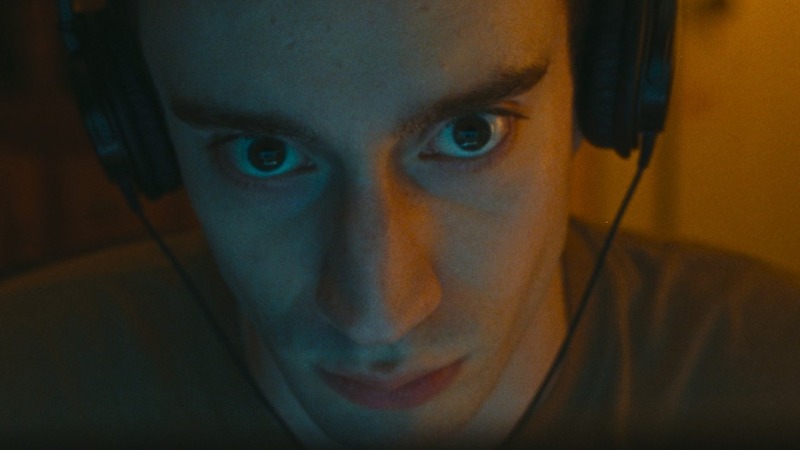Parasocial Thriller Lurker Finds the Nexus of Exploitation and Necessity

One of the most oft-repeated musical mantras in writer-director Alex Russell’s (The Bear, Beef) new parasocial thriller Lurker comes from the mouth of Archie Madekwe’s rising pop star Oliver as the foundation of a new, sure-to-be-hit single: “What’s the difference between love and obsession?” This query is positioned as a central topic of the film’s story of a conniving loser who worms his way into the entourage of an emerging talent, but it deliberately misstates the bounds of the film’s actual focus as it dives into the relationship between Oliver and–definitely obsessive, don’t get us wrong–Matthew (Théodore Pellerin), the young man who his presence lifts from obscurity. But Lurker doesn’t so much muse on “love vs. obsession” as it does the shared, codependent need for attention and validation, vs. the intolerable state of feeling useless and mundane. Russell’s psychological thriller throws off the weight of expected tropes and narrative funneling from similar psychological thrillers (Ingrid Goes West) to create a more interesting portrait of two young men who ultimately need each other to fill their emptiness, each convinced that they’re the one doing the exploiting.
At the film’s heart is Pellerin’s Matthew, a cipher of a character when we meet him–he works at some kind of high-end Hollywood boutique where the trendy, rising players in town pop in to pick up garish hoodies, and we can see that when the mononymous Oliver enters, it’s a moment that Matthew has been patiently waiting for. Over a carefully selected piece of music, they share the equivalent of a deliberately engineered meet-cute, resulting in Matthew scoring the hallowed invitation to not only attend Oliver’s show, but follow the crew back to the home where his clique has effectively set up their own parasitic little enclave. Within a day, the hobbyist photographer has latched onto advice given to him by musical manager Shai (Havana Rose Liu), “try to make yourself useful, if you want to stick around,” and has parlayed some candid low-res videography of Oliver and his friends goofing around into the (seemingly unpaid) job of assisting with the filming of a behind-the-scenes documentary for “Ollie.”
Pellerin is a revelation here, his bugging eyes and sallow approximation of human behavior the film’s greatest strength and emotional core. He demonstrates remarkable dexterity in subtle, split-second changes in facial expression, swinging from the mask of artificially plastered smiles and laughter, or feigned ignorance in a topic, to blink-and-you’ll-miss-it flashes of panic and an all-devouring hunger for validation. Any threat to his status within the group is something he cannot abide, and it’s amazing to watch Pellerin process his emotions in real-time in Lurker, the audience effectively spying on him as disgust and fear creep into his face in the moments after he does something like bring a friend to the house who begins to make his own connections within the group. Matthew has no use for these other members in the circle, older friends of Oliver who are content to simply sit around and play videogames when their meal ticket isn’t present. Matthew, in fact, is only alive if Oliver is there. In this manner, Russell’s film combines the favor-grubbing humiliation of The Favourite with the sociopathic focus of Nightcrawler to create a character who does indeed make your skin crawl to some degree, but with an undercurrent of relatable patheticness and pathos that keeps him from registering as a one-dimensional villain.
Rest assured, there’s absolutely something wrong with Matthew, but Lurker defies genre convention, especially for this type of erotically tinged thriller, by resisting the urge to become more depraved or unrealistically heightened, the structure that typically builds to a conclusion of violence when the creepy interloper is finally discovered and banished from the blessed life. The film’s title arguably makes it sound more sinister than the dynamic ends up being, because Lurker isn’t about a solo, sociopathic creep infiltrating a group, but rather how he and Ollie ultimately influence each other and build codependence through what they can both offer to one another.
-

-

-

-

-

-

-

-

-

-

-

-

-

-

-

-

-

-

-

-

-

-

-

-

-

-

-

-

-

-

-

-

-

-

-

-

-

-

-

-








































